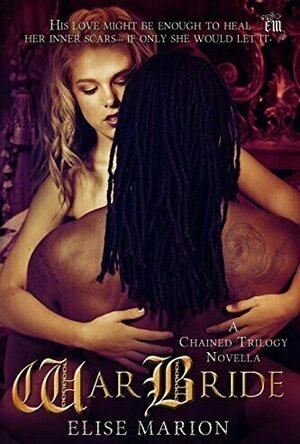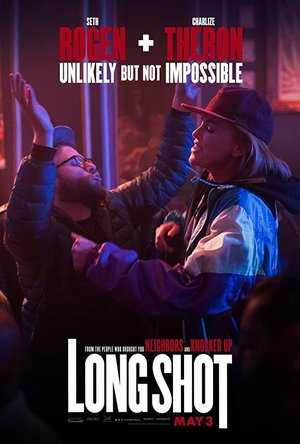Search
Search results
Debbiereadsbook (1664 KP) rated I've Got You in Books
Jul 3, 2019
a stunning follow up!
Independent reviewer for Archaeolibrarian, I was gifted my copy of this book.
This is sort of the second book in the set, Let Me Show You is the first, and you really should read that one, I think, to give you the full picture of what Scott did to Carter in that book, and why he feels so bad about himself in this one. Not totally NECESSARY, but I think it would help a great deal.
Scott was awful to Carter, and then came out to him, which made what Scott did all the worse. When Scott kisses Davis, Tanner’s best friend, at Carter and Tanner’s party, Scott runs. It takes a great deal of Carter to bring Scott out of himself. Davis is profoundly affected by that kiss, and he knows what Scott did to Carter was bad, but when Davis sees Scott, really SEES deep into his eyes, Davis knows Scott is desperately unhappy with his lot. But can the newly outed vet be happy with the single dad? Can he be happy, at ALL?
Like I said, I think it would help a great deal to read Carter and Tanner’s book before this one. If only to give you the full picture of what Scott did to Carter, and why Tanner is reluctant to forgive Scott, even if Carter does, and just why Scott hates himself so much. You need that bigger picture, I think. Just my personal opinion, is all.
Scott is hurting. He knows what he did was wrong, and the fact that Carter has taken it upon himself to become Scott’s best friend shocks him but gives him hope. He doesn’t know if he will ever be truly happy with himself for that, but he has to try. Meeting Davis at Carter and Tanner’s party was a bit of a revelation. He doesn’t know why he kissed Davis, but he liked it, a lot. Getting to know Davis seems like a good idea, but a deeply scary one for Scott, especially since Davis has a baby daughter.
Davis is lovely! I loved his patience with Scott, he knows Scott is hurting, and he knows Scott is newly out, so he understands explaining stuff is hard work, but very quickly, very early on, Davis knows Scott is the man for him. He just has to bide his time while Scott gets himself sorted. When Scott comes to work in Davis’ coffee shop, it gives Davis the ideal opportunity to get close to Scott. And when Scott meets Libby?? Davis is smitten, deeply!
There is, for Scott, a great deal of soul-searching in this book. Davis is an open book here and Scott is not. It takes time for Scott to come out of himself, and for the relationship between Davis and Scott to develop and I loved that. In Carter and Tanner’s review, I said I loved being made to wait for the main event but here? I wasn’t even sure we would GET the main event! It’s a close thing, I tell ya. But it’s right and proper that these two take their time, and get to know each other properly, I think.
It has some sexy time, some deeply emotional time, some funny moments and some shocking ones. Both Davis and Scott have their say, in the first person. Both voices are very different, and each change is clearly headed at the beginning of a chapter.
It also has some very homophobic comments from a shocking source, where you don’t expect them, but once you know, you understand why Scott was in a bad place before.
We leave this little town, with Scott and Davis, and Carter and Tanner happily settling down to their new lives together. We also get to meet Scott’s sister. I’d like her to be happy too. She had it tough for a long time, and reconnecting with Scott gives her the courage to do something about her life. She deserves the kind of happiness her brother has found, too, please Ms Seymour!
Not quite as warm and fuzzies and too stinking cute as Let Me Some You, but it’s a very close thing! Still. . .
5 full and shiny stars
**same worded review will appear elsewhere**
This is sort of the second book in the set, Let Me Show You is the first, and you really should read that one, I think, to give you the full picture of what Scott did to Carter in that book, and why he feels so bad about himself in this one. Not totally NECESSARY, but I think it would help a great deal.
Scott was awful to Carter, and then came out to him, which made what Scott did all the worse. When Scott kisses Davis, Tanner’s best friend, at Carter and Tanner’s party, Scott runs. It takes a great deal of Carter to bring Scott out of himself. Davis is profoundly affected by that kiss, and he knows what Scott did to Carter was bad, but when Davis sees Scott, really SEES deep into his eyes, Davis knows Scott is desperately unhappy with his lot. But can the newly outed vet be happy with the single dad? Can he be happy, at ALL?
Like I said, I think it would help a great deal to read Carter and Tanner’s book before this one. If only to give you the full picture of what Scott did to Carter, and why Tanner is reluctant to forgive Scott, even if Carter does, and just why Scott hates himself so much. You need that bigger picture, I think. Just my personal opinion, is all.
Scott is hurting. He knows what he did was wrong, and the fact that Carter has taken it upon himself to become Scott’s best friend shocks him but gives him hope. He doesn’t know if he will ever be truly happy with himself for that, but he has to try. Meeting Davis at Carter and Tanner’s party was a bit of a revelation. He doesn’t know why he kissed Davis, but he liked it, a lot. Getting to know Davis seems like a good idea, but a deeply scary one for Scott, especially since Davis has a baby daughter.
Davis is lovely! I loved his patience with Scott, he knows Scott is hurting, and he knows Scott is newly out, so he understands explaining stuff is hard work, but very quickly, very early on, Davis knows Scott is the man for him. He just has to bide his time while Scott gets himself sorted. When Scott comes to work in Davis’ coffee shop, it gives Davis the ideal opportunity to get close to Scott. And when Scott meets Libby?? Davis is smitten, deeply!
There is, for Scott, a great deal of soul-searching in this book. Davis is an open book here and Scott is not. It takes time for Scott to come out of himself, and for the relationship between Davis and Scott to develop and I loved that. In Carter and Tanner’s review, I said I loved being made to wait for the main event but here? I wasn’t even sure we would GET the main event! It’s a close thing, I tell ya. But it’s right and proper that these two take their time, and get to know each other properly, I think.
It has some sexy time, some deeply emotional time, some funny moments and some shocking ones. Both Davis and Scott have their say, in the first person. Both voices are very different, and each change is clearly headed at the beginning of a chapter.
It also has some very homophobic comments from a shocking source, where you don’t expect them, but once you know, you understand why Scott was in a bad place before.
We leave this little town, with Scott and Davis, and Carter and Tanner happily settling down to their new lives together. We also get to meet Scott’s sister. I’d like her to be happy too. She had it tough for a long time, and reconnecting with Scott gives her the courage to do something about her life. She deserves the kind of happiness her brother has found, too, please Ms Seymour!
Not quite as warm and fuzzies and too stinking cute as Let Me Some You, but it’s a very close thing! Still. . .
5 full and shiny stars
**same worded review will appear elsewhere**
Phil Leader (619 KP) rated Wanna Get Lucky? (Lucky O'Toole #1) in Books
Nov 28, 2019
Lucky O'Toole is head of Customer Relations at the splendidly over-the-top Babylon Hotel and Casino complex in Las Vegas. That means she spends all of her time dealing with the gamblers, drunks and high maintenance high rollers as well as dealing with any potential bad publicity. When a cocktail waitress falls out of one of their helicopters and is headline news it is a complication Lucky doesn't need, but as she starts to deal with this latest problem it soon becomes clear it may not have been an accident. Determined to get to the bottom of what is going on she plunges into the seedy world of Vegas behind the bright lights. As if this isn't enough her long-neglected love life starts adding complications all of its own. With the adult film awards and a convention for swingers about to hit the hotel she certainly has her hands full.
This book has it all. It is very funny (and yes I did laugh out loud several times and insist on reading passages out to my wife) with Lucky's self-deprecating humour and sharp sarcastic streak balanced off against the odd ball events that happen that could only be considered routine in Las Vegas. Coonts has a terrifically light touch with both dialogue and prose. I particularly liked the way lucky didn't just answer her phone but 'pushes to talk'. That always made me smile.
There is also a good thriller plot around the fall from the helicopter and who might be responsible and for what reason. Lucky has good reason to suspect everyone, even those she feels she ought to trust as the plot goes to the heart of the power play behind the big casino resorts. Although most of the pieces are in place and it's pretty clear what has happened by just over half way through, it's still fun seeing Lucky use all her contacts and knowledge to round everything up to a satisfying conclusion.
Romance is also a big theme, with Lucky being thrown into a quandary over her love life and friendships. She struggles with this between trying to sort out the main plot line and as the book goes on it becomes more important both to her and the reader, but again Coonts deals with this well and at no point does the narrative bog down in any kind of over-romantic slush but manages to keep everything light but believable.
There is also some personal background for Lucky to deal with, and also her complicated relationship with her mother (who runs an out of town brothel) thrown into the mix to keep everything lively. This is certainly not a boring read.
Despite some of the obvious themes - Lucky's romantic incidents, her mother running a brothel, the adult movie stars and the swingers convention - there is nothing salacious or titillating. Lucky has essentially seen it all before and is far to smart to do anything other than make sardonic comments.
The characterisation is superb. Lucky is a brilliant character, very capable and with her acerbic wit very much to the fore. The supporting cast are no less well drawn, any of them could have carried a book of their own. Tall Texan security man Paxton Dane, occasionally baffled by the detail of how Las Vegas works is a good foil for Lucky as is her best friend Teddie, a female impersonator who looks better in her clothes than she does. The inexperienced Detective Romeo is gifted the arrest by Lucky but doesn't ever feel like he is just a stooge. There are too many more to mention here but each one - staff, guests or anyone else that appears - you get the impression that you are only seeing the smallest snapshot of their larger life.
There are some coincidences and luck in getting the plots to work out but after all, this is Vegas. There is too much fun to be had reading this book to worry about every detail.
Overall this is a terrific book and one that would appeal to anyone who likes a sassy, sharp and sexy story set in the seedy and seamy world of the Strip.
This book has it all. It is very funny (and yes I did laugh out loud several times and insist on reading passages out to my wife) with Lucky's self-deprecating humour and sharp sarcastic streak balanced off against the odd ball events that happen that could only be considered routine in Las Vegas. Coonts has a terrifically light touch with both dialogue and prose. I particularly liked the way lucky didn't just answer her phone but 'pushes to talk'. That always made me smile.
There is also a good thriller plot around the fall from the helicopter and who might be responsible and for what reason. Lucky has good reason to suspect everyone, even those she feels she ought to trust as the plot goes to the heart of the power play behind the big casino resorts. Although most of the pieces are in place and it's pretty clear what has happened by just over half way through, it's still fun seeing Lucky use all her contacts and knowledge to round everything up to a satisfying conclusion.
Romance is also a big theme, with Lucky being thrown into a quandary over her love life and friendships. She struggles with this between trying to sort out the main plot line and as the book goes on it becomes more important both to her and the reader, but again Coonts deals with this well and at no point does the narrative bog down in any kind of over-romantic slush but manages to keep everything light but believable.
There is also some personal background for Lucky to deal with, and also her complicated relationship with her mother (who runs an out of town brothel) thrown into the mix to keep everything lively. This is certainly not a boring read.
Despite some of the obvious themes - Lucky's romantic incidents, her mother running a brothel, the adult movie stars and the swingers convention - there is nothing salacious or titillating. Lucky has essentially seen it all before and is far to smart to do anything other than make sardonic comments.
The characterisation is superb. Lucky is a brilliant character, very capable and with her acerbic wit very much to the fore. The supporting cast are no less well drawn, any of them could have carried a book of their own. Tall Texan security man Paxton Dane, occasionally baffled by the detail of how Las Vegas works is a good foil for Lucky as is her best friend Teddie, a female impersonator who looks better in her clothes than she does. The inexperienced Detective Romeo is gifted the arrest by Lucky but doesn't ever feel like he is just a stooge. There are too many more to mention here but each one - staff, guests or anyone else that appears - you get the impression that you are only seeing the smallest snapshot of their larger life.
There are some coincidences and luck in getting the plots to work out but after all, this is Vegas. There is too much fun to be had reading this book to worry about every detail.
Overall this is a terrific book and one that would appeal to anyone who likes a sassy, sharp and sexy story set in the seedy and seamy world of the Strip.
Merissa (13792 KP) created a post
Mar 15, 2021
Kara Skinner (332 KP) rated War Bride in Books
Sep 10, 2019
Genre: Medieval, Fantasy, Adult
Goodreads rating: 3.7 out of 5 stars
My rating: 4.5 out of 5 stars
I’m going to earn your trust, Emery Toustain, he thought as he released her hand. Perhaps, if you let me, I’ll earn more than that.
The first time I read War Bride was several months ago. It was so good I actually missed a call from my boss because I was so busy reading it. No, really. I didn’t even “ignore” the call. The fact that my phone was ringing didn’t even register because I was so absorbed in the book. I ended up finishing it in less than a day.
I just finished it for the second time today, and it’s still incredible.
Emery Calliot kicks ass.
Emery will never be like other noble ladies. She always preferred wearing men’s clothing to dresses and learning archery to needlepoint. She has a tendency to ramble when she’s nervous and she can’t tame her hair for the life of her. But she had always wanted to marry eventually.
That is, until the night of King Rowan’s Treason, when she had been unspeakably hurt beyond repair. Now the idea of marriage makes her blood curdle.
But with the peace treaty between Dinasdale and Daleria shaky as it is, she doesn’t have any choice but to marry Dinasdalian lord, Leofred Toustain, a man she’s never met before, who looks terrifies her.
Yes, he was quite magnificent with skin like polished ebony and glittering eyes akin to chunks of onyx. Hawkish features were made more prominent by the absence of the beard most Dinasdalian men favored. His sharp jaw, slashing cheekbones, and arrogant nose made his hooded eyes darker and more mysterious. Leofred was beautiful in the way a panther might be—nice to look upon from a distance, but quite frightening up close.
Leofred isn’t looking forward to marriage any more than his bride-to-be is. He had always hoped marry for love, not someone had never met before. But he sees his new bride as a challenge, and he’s determined to break through her barriers and make her trust him.
“Nonsense. Everyone is capable of love. Right now, you are not capable of physical intimacy, but that is only a small part of what love between a man and a woman is. For the nonce, I would be happy if you would let me become your husband in other ways. Let me be your confidant and your friend. Let me hold your hand when we walk, and tell you I think you’re beautiful every day. Let me prove to you just how capable of love you are, and when you are ready, I will show you how beautiful making love will be between us. Only when you are ready, Emery. Not before.”
Leofred is incredibly sexy, and completely perfect for Emery. He’s gentle, nice, and very patient with her, which is exactly what she needs. They have a great story and the dialog between them is fantastic.
Before the wedding yesterday, I took the liberty of procuring a lady’s maid for you. However, if you want, I will send her away.”
“No, don’t do that. Please, send her in. As you can see, I need the help.”
He smiled at her again. “No, you don’t.”
The only thing I didn’t like was how he dealt with Caden at the beginning of the book. Caden knows what happened with Emery and wanted to warn Leofred to be patient with her. Leofred brushed him off and told him to mind his own business.
Later he blames Caden for his awkward and tense wedding night because Caden didn’t tell him what was wrong with Emery.
Whatever (Caden) knew and would not speak about had ruined his wedding night.
This is a bit of a dick move on Leofred’s part. But this is honestly the only time that he’s not a perfect gentleman. And he never mistreats or disrespects Emery.
I love the Chained series, and War Bride did not disappoint. It’s definitely worth the read.
Goodreads rating: 3.7 out of 5 stars
My rating: 4.5 out of 5 stars
I’m going to earn your trust, Emery Toustain, he thought as he released her hand. Perhaps, if you let me, I’ll earn more than that.
The first time I read War Bride was several months ago. It was so good I actually missed a call from my boss because I was so busy reading it. No, really. I didn’t even “ignore” the call. The fact that my phone was ringing didn’t even register because I was so absorbed in the book. I ended up finishing it in less than a day.
I just finished it for the second time today, and it’s still incredible.
Emery Calliot kicks ass.
Emery will never be like other noble ladies. She always preferred wearing men’s clothing to dresses and learning archery to needlepoint. She has a tendency to ramble when she’s nervous and she can’t tame her hair for the life of her. But she had always wanted to marry eventually.
That is, until the night of King Rowan’s Treason, when she had been unspeakably hurt beyond repair. Now the idea of marriage makes her blood curdle.
But with the peace treaty between Dinasdale and Daleria shaky as it is, she doesn’t have any choice but to marry Dinasdalian lord, Leofred Toustain, a man she’s never met before, who looks terrifies her.
Yes, he was quite magnificent with skin like polished ebony and glittering eyes akin to chunks of onyx. Hawkish features were made more prominent by the absence of the beard most Dinasdalian men favored. His sharp jaw, slashing cheekbones, and arrogant nose made his hooded eyes darker and more mysterious. Leofred was beautiful in the way a panther might be—nice to look upon from a distance, but quite frightening up close.
Leofred isn’t looking forward to marriage any more than his bride-to-be is. He had always hoped marry for love, not someone had never met before. But he sees his new bride as a challenge, and he’s determined to break through her barriers and make her trust him.
“Nonsense. Everyone is capable of love. Right now, you are not capable of physical intimacy, but that is only a small part of what love between a man and a woman is. For the nonce, I would be happy if you would let me become your husband in other ways. Let me be your confidant and your friend. Let me hold your hand when we walk, and tell you I think you’re beautiful every day. Let me prove to you just how capable of love you are, and when you are ready, I will show you how beautiful making love will be between us. Only when you are ready, Emery. Not before.”
Leofred is incredibly sexy, and completely perfect for Emery. He’s gentle, nice, and very patient with her, which is exactly what she needs. They have a great story and the dialog between them is fantastic.
Before the wedding yesterday, I took the liberty of procuring a lady’s maid for you. However, if you want, I will send her away.”
“No, don’t do that. Please, send her in. As you can see, I need the help.”
He smiled at her again. “No, you don’t.”
The only thing I didn’t like was how he dealt with Caden at the beginning of the book. Caden knows what happened with Emery and wanted to warn Leofred to be patient with her. Leofred brushed him off and told him to mind his own business.
Later he blames Caden for his awkward and tense wedding night because Caden didn’t tell him what was wrong with Emery.
Whatever (Caden) knew and would not speak about had ruined his wedding night.
This is a bit of a dick move on Leofred’s part. But this is honestly the only time that he’s not a perfect gentleman. And he never mistreats or disrespects Emery.
I love the Chained series, and War Bride did not disappoint. It’s definitely worth the read.

FirstMet Dating: Meet Singles
Dating, Lifestyle and Social Networking
App
MEETING REAL PEOPLE HAS NEVER BEEN EASIER! FirstMet Dating (formerly AYI) is packed with great...

WIW - Sugar Daddy Dating App
Dating, Lifestyle and Social Networking
App
WIW - What I Want The Best app for wealthy and successful sugar daddy meet beautiful and...

Bound for Justice Box Set
Book
Bound for Justice: A Box Set Against the Rules Targeted by a drug cartel, Teague is out for...
ANTHOLOGIES AND COLLECTIONS BONDAGE AND BDSM CONTEMPORARY EROTIC ROMANCE
Bob Mann (459 KP) rated Instant Karma (2021) in Movies
Sep 6, 2021
Neat idea for a movie (1 more)
Samantha Belle
Script is rambling and needs much tightening up (1 more)
Acting is often sub-par
You’ve got to admire the effort here.
Positives:
- There’s a quirky joy behind the story and it did keep me watching until the end to find out how it turned out.
- I enjoyed Samantha Belle’s performance. Whilst she has a few rough acting edges, she channelled a sort of cross between Ally Sheedy and Geena Davis that was cute. Elsewhere in the cast, Karl Haas (as Harry, the homeless guy) and Keegan Luther as the luckless Emilio gave, for me, the most naturalistic (and therefore best) performances.
- There’s an ending that, while feeling inconclusive and circuitous, did at least leave me with a smile on my face. (I hope permission was gained for the use of the name in the end titles!).
Negatives:
- If you watch, for example, “The Father” you quickly appreciate that the reason Anthony Hopkins and Olivia Colman are so GREAT in the movie is you NEVER get the feeling that they are acting. Unfortunately, in “Instant Karma”, while I appreciate that all of the cast are giving of their best, almost EVERYONE appears to be acting. While it’s seldom ‘hold your head in your hands’ terrible, the chasm of skill between this cast and the top-flight is vast. - - The script doesn’t help this by introducing a torrent of different ‘rider’ cast, many of whom should never have been put in front of a camera to deliver lines.
- While the story has potential, the script rambles around and never quite decides what genre it’s going for. Drama? It’s not dramatic enough. Thriller? It tries to go that way in the final reel, but never convincingly (and WHATEVER HAPPENED TO POOR EMILIO????). Comedy? Humourous at times maybe, but never laugh-out-loud funny. (It actually might have made a pretty good comedy – a variant on the “Do you think I asked for a million ducks?” bar joke! This idea (C) Bob Mann 2021!).
- The script is also incomplete and tonally inconsistent. There are sub-plots (e.g. Emilio’s request for the money) that are never fleshed out. And Samantha seems to veer from excitable and supportive sexy wife to full-on psycho-bitch-marital-nightmare from scene to scene.
- When you’ve got a loose script, and a cast with limited experience, don’t over-egg the pudding! The movie is 115 minutes long: I would personally have gone to town in the editing room and got it down to sub-90 minutes. The overall concoction would have been much better. As it is, we have far too many instances of “Karma” in the first half of the film and some ‘filler’ scenes that go on and on (and on and on) without adding anything to the story. For example, there is a ‘spending spree’ montage that, while very nicely put together, goes on for almost two whole minutes. Chop, chop, chop!
- Technically, the sound needs more work. There’s a lot of noise on the soundtrack and some poorly mixed music cues. Lighting inside the car was also an issue in some scenes.
Summary Thoughts on “Instant Karma”: I enjoyed watching this one more than my long list of “suggested improvements” might suggest.
I remain in awe of a team, with a limited budget, being able to project manage a movie like this to completion. And especially since this was filmed during the pandemic and in the searing heat of an Arizona summer, with the temperature rising to 117 degrees. As such, I hate to fire as many negatives at the film as I have, but I have to review things on a level playing field. With so many rough edges, I can’t give it a better rating than I have, but it gets an A+ for effort, and it’s far from being the worst film I’ve seen so far in 2021.
(For the full graphical review, check out #onemannsmovies on the web, Facebook or Tiktok. Thanks)
- There’s a quirky joy behind the story and it did keep me watching until the end to find out how it turned out.
- I enjoyed Samantha Belle’s performance. Whilst she has a few rough acting edges, she channelled a sort of cross between Ally Sheedy and Geena Davis that was cute. Elsewhere in the cast, Karl Haas (as Harry, the homeless guy) and Keegan Luther as the luckless Emilio gave, for me, the most naturalistic (and therefore best) performances.
- There’s an ending that, while feeling inconclusive and circuitous, did at least leave me with a smile on my face. (I hope permission was gained for the use of the name in the end titles!).
Negatives:
- If you watch, for example, “The Father” you quickly appreciate that the reason Anthony Hopkins and Olivia Colman are so GREAT in the movie is you NEVER get the feeling that they are acting. Unfortunately, in “Instant Karma”, while I appreciate that all of the cast are giving of their best, almost EVERYONE appears to be acting. While it’s seldom ‘hold your head in your hands’ terrible, the chasm of skill between this cast and the top-flight is vast. - - The script doesn’t help this by introducing a torrent of different ‘rider’ cast, many of whom should never have been put in front of a camera to deliver lines.
- While the story has potential, the script rambles around and never quite decides what genre it’s going for. Drama? It’s not dramatic enough. Thriller? It tries to go that way in the final reel, but never convincingly (and WHATEVER HAPPENED TO POOR EMILIO????). Comedy? Humourous at times maybe, but never laugh-out-loud funny. (It actually might have made a pretty good comedy – a variant on the “Do you think I asked for a million ducks?” bar joke! This idea (C) Bob Mann 2021!).
- The script is also incomplete and tonally inconsistent. There are sub-plots (e.g. Emilio’s request for the money) that are never fleshed out. And Samantha seems to veer from excitable and supportive sexy wife to full-on psycho-bitch-marital-nightmare from scene to scene.
- When you’ve got a loose script, and a cast with limited experience, don’t over-egg the pudding! The movie is 115 minutes long: I would personally have gone to town in the editing room and got it down to sub-90 minutes. The overall concoction would have been much better. As it is, we have far too many instances of “Karma” in the first half of the film and some ‘filler’ scenes that go on and on (and on and on) without adding anything to the story. For example, there is a ‘spending spree’ montage that, while very nicely put together, goes on for almost two whole minutes. Chop, chop, chop!
- Technically, the sound needs more work. There’s a lot of noise on the soundtrack and some poorly mixed music cues. Lighting inside the car was also an issue in some scenes.
Summary Thoughts on “Instant Karma”: I enjoyed watching this one more than my long list of “suggested improvements” might suggest.
I remain in awe of a team, with a limited budget, being able to project manage a movie like this to completion. And especially since this was filmed during the pandemic and in the searing heat of an Arizona summer, with the temperature rising to 117 degrees. As such, I hate to fire as many negatives at the film as I have, but I have to review things on a level playing field. With so many rough edges, I can’t give it a better rating than I have, but it gets an A+ for effort, and it’s far from being the worst film I’ve seen so far in 2021.
(For the full graphical review, check out #onemannsmovies on the web, Facebook or Tiktok. Thanks)
Debbiereadsbook (1664 KP) rated Lionhearts: Part Two Box Set in Books
Mar 21, 2019
nice easy reads.
Independent reviewer for Archaeolibrarian, I was gifted my copy of these books.
Into The Arena
Cesare has been banished from his pride after his uncle cheated in a leadership fight. Finding work on a food truck headed from a for set seemed too good to be true. Finding Hayden as the star AND his fated mate, made Cesare think that maybe he wasn't supposed to win the fight at all. But Hayden has a stalker, and things turn deadly. Can Cesare keep his human mate safe, and will Hayden accept Cesare's lion half?
This is book 4 in the Lionhearts series and I have not read the other books. I did not feel I was missing anything, and so will say these are stand alones, with interconnecting characters, rather than a follow on series.
I liked this one. It did not blow me away, but right now, personally, this was JUST what I needed to read.
It's well told, with both Cesare and Hayden having a say. There is enough history for each of them, but not enough to be overwhelming in a short book. Well, I say SHORT, but it's still 176 pages! Didn't feel like it though!
I loved that we got some of the stalker too! They have their say in a couple of places, and I do love getting into the mind of the baddie! Did NOT see who that might have been, or rather, I had an idea, but was way off base.
It's quite sexy. There is a scene with Hayden getting down and dirty with his boyfriend BEFORE he and Cesare meet. Then Hayden and Cesare get down to it really quickly after meeting! Not sure how I feel about the first, but loved the second.
Nice easy read, and just the thing to pass a wet sunday afternoon, while nursing a very real hangover!
4 solid stars
**same worded review will appear elsewhere**
Pride Under Fire
Book 5 in the Lionheart series, and there is a pop up from Cesare and Hayden (book 4) which was nice!
Connor punched his commanding officer, and is shifted out to a town in the middle of nowhere, that needs a full time fire fighter. Andy is a detective in said town. Andy is human, Connor is not. Can Connor keep his mate safe, while the town burns around them?
Again, an easy read, that was just what I needed!
Connor knows he did wrong, punching his superior, but he won't apologise. Being shipped out was probably the best thing that happened to him, since he meets his mate. But Andy is human and lions don't mate with humans, do they?When there are several fires in town, in abandoned buildings, both Connor and Andy have to investigate. Then the bodies start piling up, and they know the arsonist has to be stopped , and soon.
There were several throw away comments that made me put the clues together for who the arsonist was very early on, and it was great to see it unfold the way I thought it would.
Again, the guys get down and dirty very early on, and I did like that here.
BUT
The general way the story goes is almost identical to book 4, Into The Arena. It's very VERY similar in that the human half gets taken, and the lion half comes to the rescue, mostly in the same way too!
Still, I did enjoy this as much as book 4, and I did read them back to back.
4 stars
Animal Passions
This is book 6 and for ME, the weakest of the three I've read.
Here's why:
It follows an almost identical plot line to the other two. Human half has sex with *someone* then goes off and meets mate. Mate and human get down and dirty right quick (did not like that here!) danger threatens human, lion reveals himself. human is taken by *stalker/arsonist/psycho editor assistant* and lion comes to the rescue. the end.
So, I'm sorry, but no, this one did not work for me. I only gave it 3 stars because I DID finish it, and it was touch and go for a while.
Maybe if I had NOT read them back to back, this one would have worked better, but I did read them back to back, and this is how I feel. And I'm all about the book feelings.
Sorry!
3 stars
**same worded review will appear elsewhere**
Into The Arena
Cesare has been banished from his pride after his uncle cheated in a leadership fight. Finding work on a food truck headed from a for set seemed too good to be true. Finding Hayden as the star AND his fated mate, made Cesare think that maybe he wasn't supposed to win the fight at all. But Hayden has a stalker, and things turn deadly. Can Cesare keep his human mate safe, and will Hayden accept Cesare's lion half?
This is book 4 in the Lionhearts series and I have not read the other books. I did not feel I was missing anything, and so will say these are stand alones, with interconnecting characters, rather than a follow on series.
I liked this one. It did not blow me away, but right now, personally, this was JUST what I needed to read.
It's well told, with both Cesare and Hayden having a say. There is enough history for each of them, but not enough to be overwhelming in a short book. Well, I say SHORT, but it's still 176 pages! Didn't feel like it though!
I loved that we got some of the stalker too! They have their say in a couple of places, and I do love getting into the mind of the baddie! Did NOT see who that might have been, or rather, I had an idea, but was way off base.
It's quite sexy. There is a scene with Hayden getting down and dirty with his boyfriend BEFORE he and Cesare meet. Then Hayden and Cesare get down to it really quickly after meeting! Not sure how I feel about the first, but loved the second.
Nice easy read, and just the thing to pass a wet sunday afternoon, while nursing a very real hangover!
4 solid stars
**same worded review will appear elsewhere**
Pride Under Fire
Book 5 in the Lionheart series, and there is a pop up from Cesare and Hayden (book 4) which was nice!
Connor punched his commanding officer, and is shifted out to a town in the middle of nowhere, that needs a full time fire fighter. Andy is a detective in said town. Andy is human, Connor is not. Can Connor keep his mate safe, while the town burns around them?
Again, an easy read, that was just what I needed!
Connor knows he did wrong, punching his superior, but he won't apologise. Being shipped out was probably the best thing that happened to him, since he meets his mate. But Andy is human and lions don't mate with humans, do they?When there are several fires in town, in abandoned buildings, both Connor and Andy have to investigate. Then the bodies start piling up, and they know the arsonist has to be stopped , and soon.
There were several throw away comments that made me put the clues together for who the arsonist was very early on, and it was great to see it unfold the way I thought it would.
Again, the guys get down and dirty very early on, and I did like that here.
BUT
The general way the story goes is almost identical to book 4, Into The Arena. It's very VERY similar in that the human half gets taken, and the lion half comes to the rescue, mostly in the same way too!
Still, I did enjoy this as much as book 4, and I did read them back to back.
4 stars
Animal Passions
This is book 6 and for ME, the weakest of the three I've read.
Here's why:
It follows an almost identical plot line to the other two. Human half has sex with *someone* then goes off and meets mate. Mate and human get down and dirty right quick (did not like that here!) danger threatens human, lion reveals himself. human is taken by *stalker/arsonist/psycho editor assistant* and lion comes to the rescue. the end.
So, I'm sorry, but no, this one did not work for me. I only gave it 3 stars because I DID finish it, and it was touch and go for a while.
Maybe if I had NOT read them back to back, this one would have worked better, but I did read them back to back, and this is how I feel. And I'm all about the book feelings.
Sorry!
3 stars
**same worded review will appear elsewhere**
BankofMarquis (1832 KP) rated Long Shot (2019) in Movies
May 4, 2019 (Updated May 4, 2019)
Surprisingly Strong Chemistry Between The Leads
Quite a few people that I have spoken with don't like either Charlize Theron or Seth Rogan as performers, so the idea of a pairing of the straight-laced, uptight politician played by Theron and the shlubby, weed-smoking slacker played by Rogan was like "nails on a chalkboard" to them.
And these people would be wrong, for LONG SHOT is a very entertaining, heartfelt romantic comedy that has one big surprise - the strong chemistry between the two leads.
Kind of the "anti-AMERICAN PRESIDENT" (the 1995 Michael Douglas/Annette Benning RomCom written by Aaron Sorkin), LONG SHOT tells the tale of Secretary of State, Charlotte Field (Theron) who embarks on a Presidential bid. When she polls low in "sense of humor" she decides to add a comedy writer to her staff to punch up her speeches. A chance encounter with her childhood next door neighbor leads Field to hire Fred Flarsky (Seth Rogan). Will sparks fly? Can Fred remind Charlotte of why she chose politics in the first place?
What do you think? It's a RomCom afterall, but it's the journey and not the destination that is important.
And...his is a fun journey...mostly because of the performances of Theron and Rogan. Over the years, I have grown to really appreciate Theron - from dramas like NORTH COUNTRY and her Oscar-winning turn in MONSTER, to action flicks like MAD MAX:FURY ROAD and FATE OF THE FURIOUS, to comedies like A MILLION WAYS TO DIE IN THE WEST and this film - there is nothing (apparently) that she can't do. She is really good in all of these - even if the material is not the greatest.
The surprise to me here was the performance of Rogan - it was "wacky", "stoner-ish" and "out there", but toned down and tempered - probably the sign of a good, strong Director at the helm. I bought Flarsky's journey in this story and the relationship between these two characters was believable because Rogan was able to match Theron's energy and show real chemistry between the two.
Other fine turns are given by O'Shea Jackson, Jr (STRAIGHT OUTTA COMPTON), as Rogan's buddy, Ravi Patel (TV's MASTER OF NONE) as one of Theron's support staff and (especially) June Diane Rapheal (TV's GRACE AND FRANKIE) who really shines in the unenviable role of the Theron's Chief of Staff who doesn't approve of putting Rogan's character on the team, but she plays the role with layers - not one-note - and so we get a real person, with conflicted feelings at time, and she rises above the typical type of character in this type of role.
The only disappointment for me was Bob Odenkirk's President (who is stepping down for - he hopes - a much bigger job, MOVIE STAR) and not because of Odenkirk's performance, he was fine with what he was given, but there wasn't much nuance written in this part and (compared to the layers shown/written by others) the one-note-ness of Odenkirk's character was noticeable. As was Andy Serkis as a heavily-made up, older media mogul who is trying to use his wealth to manipulate the events from behind the scene - this character (and make-up) was a "swing and a miss" for me. But, fortunately, neither Serkis nor Odenkirk have much screen time, so it was more of a "distraction" than an "annoyance" for me.
I mention the Director - so I better give credit to Jonathan Levine (the awful SNATCHED with Amy Shumer and Goldie Hawn) - I have not really enjoyed anything else he has Directed, but I have to give him credit for this one - he brings "the funny and the crude" without going overboard, driving the story efficiently while putting in enough yuks and (surprisingly) heart in this movie along the way.
Now...don't be fooled here...there is quite a bit of "crude, lewd and rude" behavior and jokes (a crucial plot point hangs on a "sex act"), so don't expect a gentile, Cary Grant/Katherine Hepburn battle of the sexes. Expect a funny (crude), sexy (lewd) and opinionated (rude) take on the modern political system and how a person can lose their soul if they choose to play the game.
With a large amount of heart - and strong performances/chemistry between the two leads - I was pleasantly surprised by LONG SHOT - and, if you can handle the crude, lude and rude, then you will have a good time at this film.
Letter Grade: A-
8 stars (out of 10) and you can take that to the Bank(OfMarquis)
And these people would be wrong, for LONG SHOT is a very entertaining, heartfelt romantic comedy that has one big surprise - the strong chemistry between the two leads.
Kind of the "anti-AMERICAN PRESIDENT" (the 1995 Michael Douglas/Annette Benning RomCom written by Aaron Sorkin), LONG SHOT tells the tale of Secretary of State, Charlotte Field (Theron) who embarks on a Presidential bid. When she polls low in "sense of humor" she decides to add a comedy writer to her staff to punch up her speeches. A chance encounter with her childhood next door neighbor leads Field to hire Fred Flarsky (Seth Rogan). Will sparks fly? Can Fred remind Charlotte of why she chose politics in the first place?
What do you think? It's a RomCom afterall, but it's the journey and not the destination that is important.
And...his is a fun journey...mostly because of the performances of Theron and Rogan. Over the years, I have grown to really appreciate Theron - from dramas like NORTH COUNTRY and her Oscar-winning turn in MONSTER, to action flicks like MAD MAX:FURY ROAD and FATE OF THE FURIOUS, to comedies like A MILLION WAYS TO DIE IN THE WEST and this film - there is nothing (apparently) that she can't do. She is really good in all of these - even if the material is not the greatest.
The surprise to me here was the performance of Rogan - it was "wacky", "stoner-ish" and "out there", but toned down and tempered - probably the sign of a good, strong Director at the helm. I bought Flarsky's journey in this story and the relationship between these two characters was believable because Rogan was able to match Theron's energy and show real chemistry between the two.
Other fine turns are given by O'Shea Jackson, Jr (STRAIGHT OUTTA COMPTON), as Rogan's buddy, Ravi Patel (TV's MASTER OF NONE) as one of Theron's support staff and (especially) June Diane Rapheal (TV's GRACE AND FRANKIE) who really shines in the unenviable role of the Theron's Chief of Staff who doesn't approve of putting Rogan's character on the team, but she plays the role with layers - not one-note - and so we get a real person, with conflicted feelings at time, and she rises above the typical type of character in this type of role.
The only disappointment for me was Bob Odenkirk's President (who is stepping down for - he hopes - a much bigger job, MOVIE STAR) and not because of Odenkirk's performance, he was fine with what he was given, but there wasn't much nuance written in this part and (compared to the layers shown/written by others) the one-note-ness of Odenkirk's character was noticeable. As was Andy Serkis as a heavily-made up, older media mogul who is trying to use his wealth to manipulate the events from behind the scene - this character (and make-up) was a "swing and a miss" for me. But, fortunately, neither Serkis nor Odenkirk have much screen time, so it was more of a "distraction" than an "annoyance" for me.
I mention the Director - so I better give credit to Jonathan Levine (the awful SNATCHED with Amy Shumer and Goldie Hawn) - I have not really enjoyed anything else he has Directed, but I have to give him credit for this one - he brings "the funny and the crude" without going overboard, driving the story efficiently while putting in enough yuks and (surprisingly) heart in this movie along the way.
Now...don't be fooled here...there is quite a bit of "crude, lewd and rude" behavior and jokes (a crucial plot point hangs on a "sex act"), so don't expect a gentile, Cary Grant/Katherine Hepburn battle of the sexes. Expect a funny (crude), sexy (lewd) and opinionated (rude) take on the modern political system and how a person can lose their soul if they choose to play the game.
With a large amount of heart - and strong performances/chemistry between the two leads - I was pleasantly surprised by LONG SHOT - and, if you can handle the crude, lude and rude, then you will have a good time at this film.
Letter Grade: A-
8 stars (out of 10) and you can take that to the Bank(OfMarquis)






Eilidh G Clark (177 KP) Jul 4, 2019